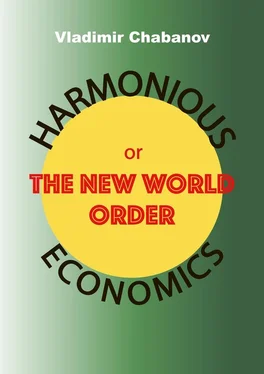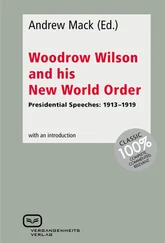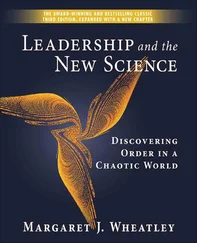In the light of the foregoing, the capitalist model of economy only pushes the humanity further towards a dead end. It is suited for energetic, selfish and cruel people. Therefore, it primarily creates appropriate conditions for such individuals, while the rest of the society is seen as a nutrient medium for them.
At the same time, if nature created humans different it was not for some of them parasitizing the others. In reality, different human qualities are required to reinforce the general human ability to survive, to adapt to any developmental scenario and to explore the world compared with the same abilities of a separate individual. For this reason, an economy focused on one type of people only is inevitably weaker, less vigorous and more defective.
Karl Marx described economics as a science that studies “ historically determined forms of production and exchange, as well as corresponding social relations ’. Therefore, the USSR, where this understanding of economics was put into practice, defined this science as a branch of knowledge related to the study of the objective social development laws and to the formulation of practical recommendations in the area of production and distribution of material goods. Such economics served the society more than specific individuals. It put more emphasis on the peculiarities of class war rather than class cooperation, and encouraged collaboration over competition.
The governance within such system turned out to be overcentralized, as the result, the ruling elites acquired all-embracing power. The worker became just a cog in the production machine, well cared for (the Soviet social security system is still unrivalled), but deprived of all rights. And this lack of harmony eventually conditioned the collapse of the socialist system.
Resuming what has been said above, it is possible to conclude that neither the capitalist, nor the socialist economic models is perfect. Neither of the two has reconciled labour differentiation and cooperation, the private and the common, the functioning of the active and the passive social forces. Therefore, the economic success of both capitalist and socialist countries was less impressive than it could have been provided the current scientific, technological and human intellectual development.
In order to elaborate the harmonious approach to this phenomenon, we shall consider that economics is a science that studies the mechanisms of increasing human labour productivity and assuring better life quality for the population. Importantly, the life quality of the current generation, as well as of all the subsequent generations. Economics should encourage human integration in the Natural ecosystem; it should abide by the laws of this ecosystem and increase the moral and cultural level of the human society. This science is supposed to reinforce the moral principles of society, instead of annihilating them. It should stimulate a coordinated evolvement of the entire human society and consider a human being as part of the Universe executing its specific functions, and not as an ordinary consumer, who pursues his selfish goal or become a victim of the desire of others.
This monograph is dedicated to the description of the main rules and forms of such organisation.
Without any doubt, this will be a completely different economics. Therefore, neither the capitalist, nor the socialist theories is fully suitable for it. The main objective here is not prioritizing the interest of any of the parties , as we can witness in the current economic relations, but enlarging the scope of economic activities so that everybody could have their fair share.
The harmonisation of economic relations will render the society more human, it will become stronger, kinder, and more spiritually developed. Besides, an enormous amount of human energy will be liberated and directed towards production rather than struggle for existence. The ultimate goal will be prosperity for all instead of well-being of the privileged few; normal life instead of bare survival. That is why the economic model corresponding to these principles will be called harmonious economics. This means self-consistent, orderly, where parts will be coordinated with the whole to make one organism that will oppose the chaos.
Harmonious economics will resort to both differentiation and cooperation of labour, and complete both individual and social functions of production to integrate both the strong and the weak into society. Money will become obedient servant of humans, instead of capricious master that it is now. Taxes will no more function as a mechanism for income alienation, but as a tool for income increase.
Such economics will benefit entrepreneurs as much as wage workers. The rules of conduct will encourage the exchange of labour products, as well as fairness and harmony of human relationships, and will not destroy them any more. All types of property will exist and prove useful through fair competition. This means that none of the useful factors will be abandoned but all of them will be combined harmoniously. Such organisation will be very natural, as in Nature all things rationally coexist.
If the purpose of economics is well-being of the few at any expense, then capitalism is the best model to apply. If it is needed to reinforce the state at any expense, then the socialist model is the best choice. But if the country seeks prosperity of the entire nation and of every single individual in it, then neither of the model is sufficient. Such a purpose requires a fundamentally different type of economic ideology. And it is obvious that different economic doctrine cannot be created following the same standards or share common rules or ideology.
1.2.2. Fundamental purpose of harmonious economics
From now on we shall hold that the mission of economics is encouraging harmonious integration of humans in the Natural ecosystem, abiding by its laws, increasing the productivity of human labour and assuring smooth development of society. In this event, the model to emulate is not the economic organisation of the US, of Japan or any other state, as we have been trying to do, but the natural order of things. Obviously, none of the countries mentioned is ideal. It is better to use nature as the perfect standard rather than resort to any surrogate models. This does not mean that the experience of others should not be taken into account; however, it should be applied selectively, as part of the coordinated system of natural patterns.
How can the purpose of economics be formulated so as to reflect this principle?
When studying the harmonious laws of economic organisation, we shall from now on consider that the purpose of economy as any other productive activity is satisfying the needs of individuals and of the entire human community. Indeed, “ Consumption is the sole end and purpose of all production… ” (Adam Smith [31]). John Keynes echoes this idea: “ Consumption – to repeat the obvious – is the sole end and object of all economic activity ’ [33].
So, it is not the generation of profit, income or money at any expense, as it might be concluded from the present-day economic theories, but working out the ways to assure best life of the individuals. Without any doubt, this assumption does not exclude the existence of income, however, it is not dominant, and is not achieved at the cost of others. The source of income is in increasing the productivity of common labour, not in the redistribution of its results.
Here, besides the everyday needs, prospective future needs also should be taken into account, not for one current generation, but for the subsequent generations, as well. Achieving this is the main mission of economics. All other purposes should be subordinated to this one, as otherwise they are pointless. Economics is meant to serve all people, not only some of them.
Читать дальше












